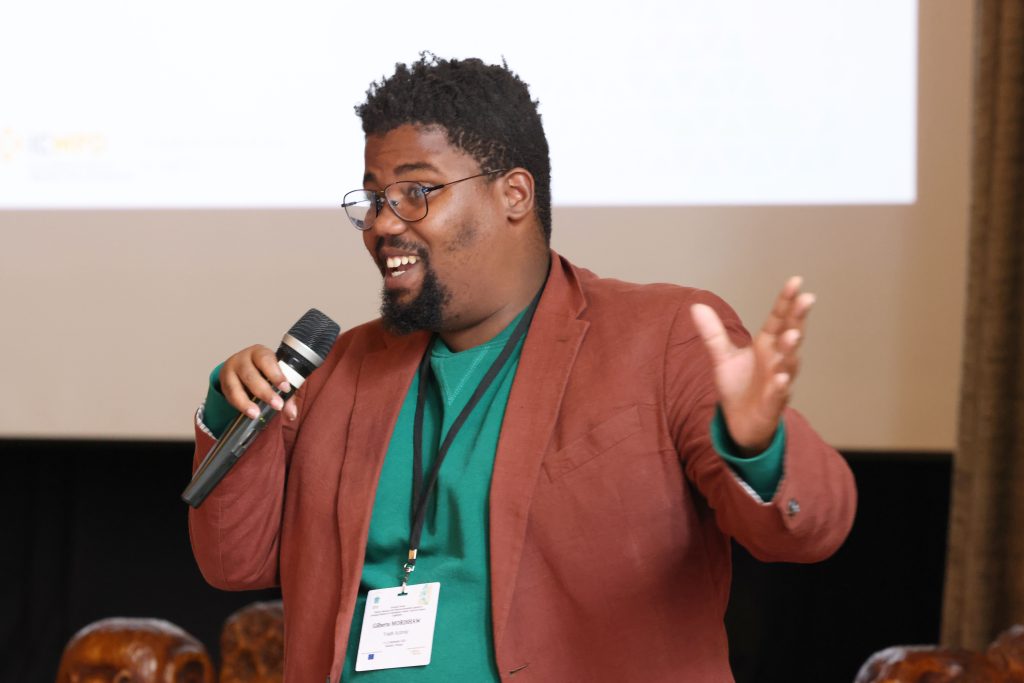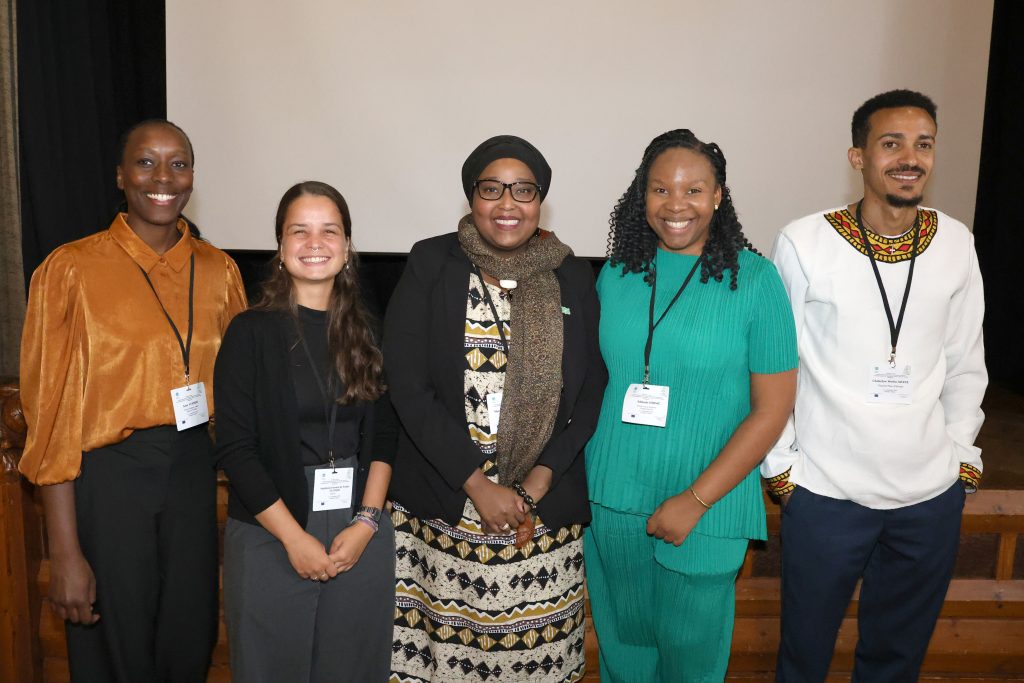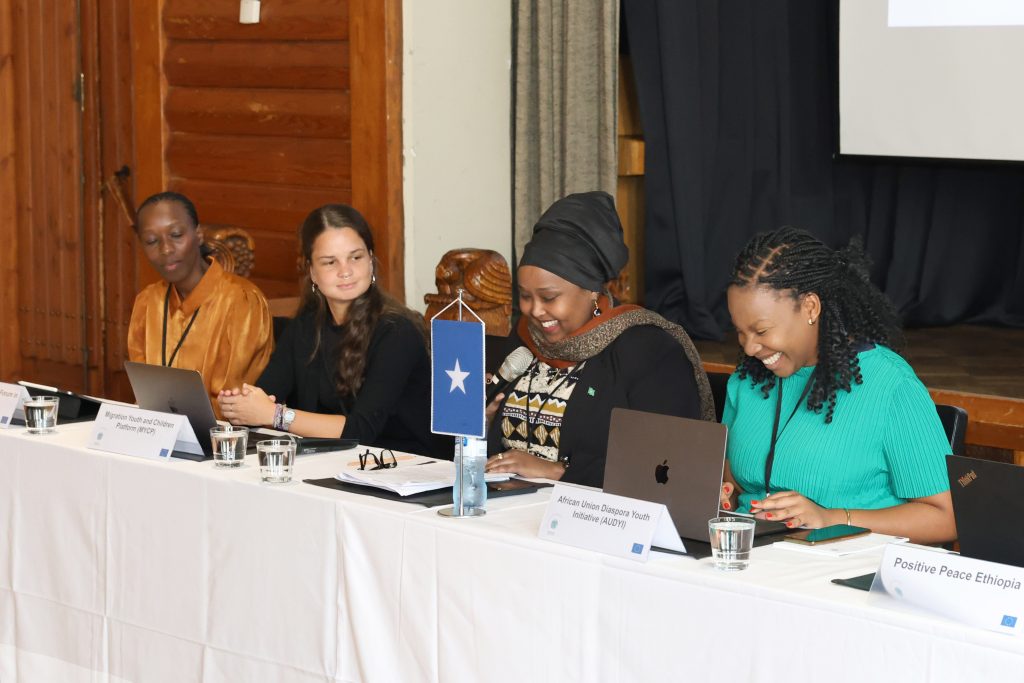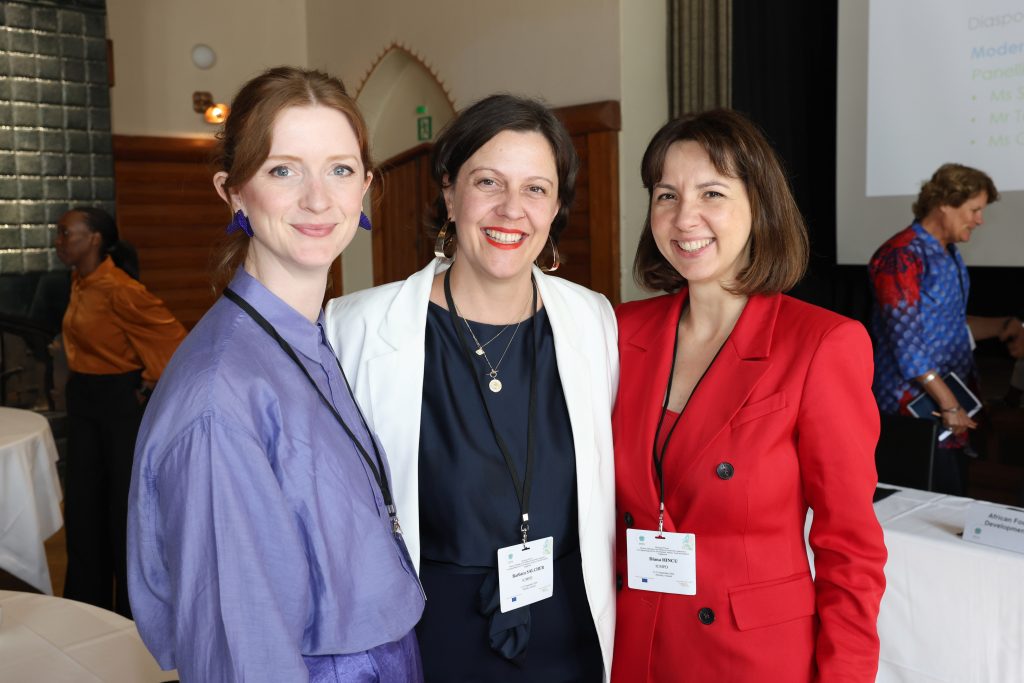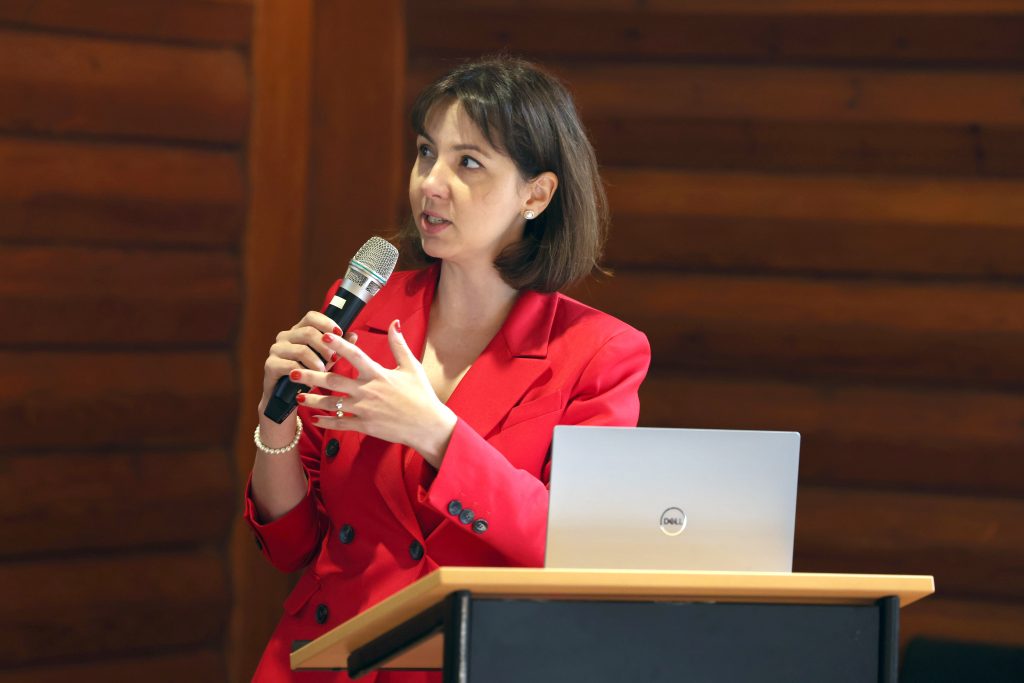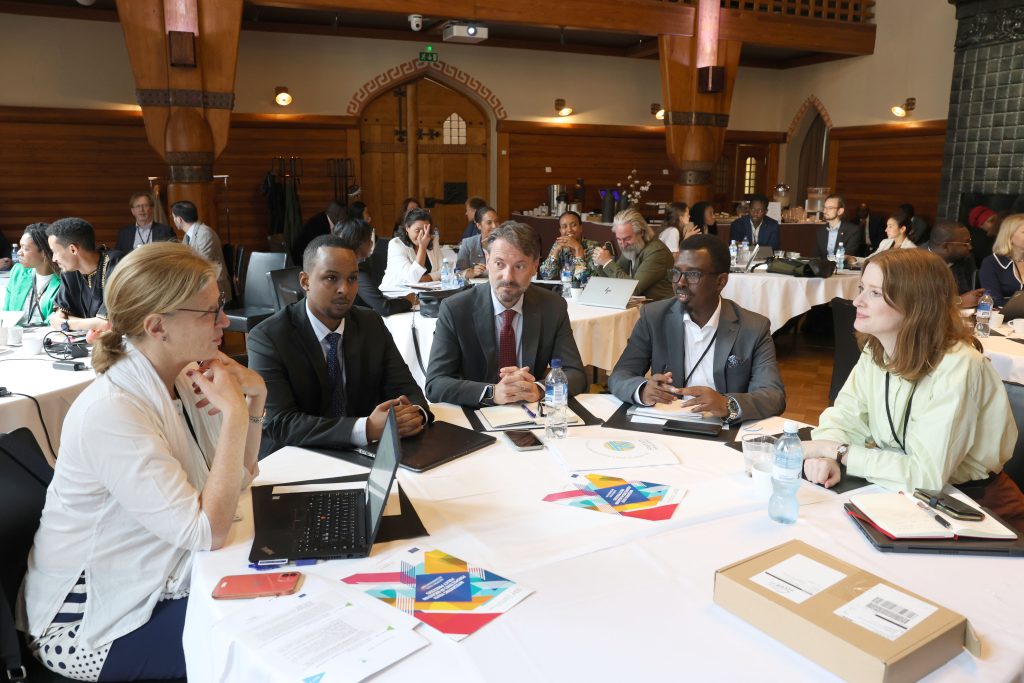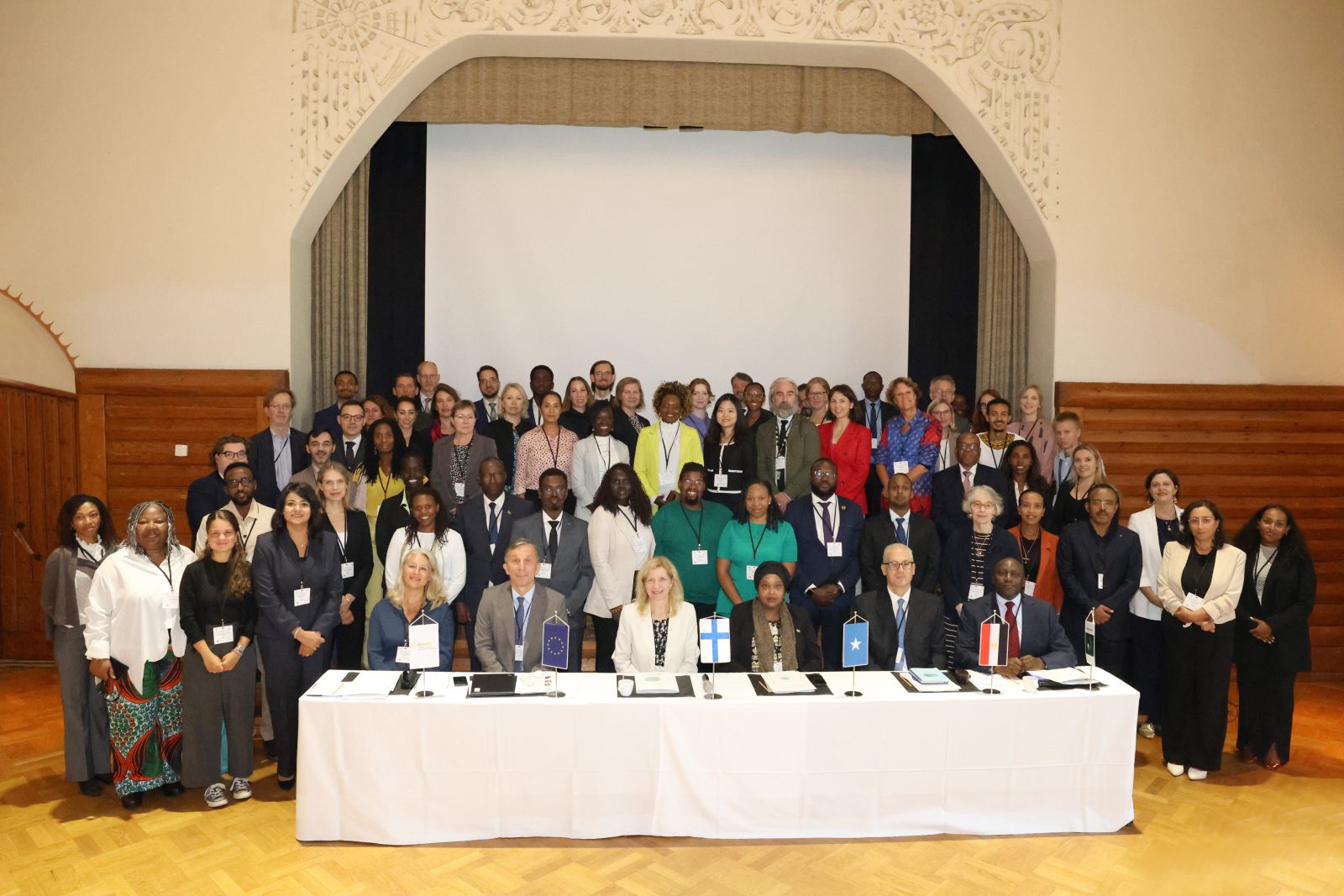
On 11-12 September, Diana and Charlotte joined the Khartoum Process thematic meeting on a “Whole-of-Government approach to leveraging Migration for Development: Women, Youth and Diaspora Engagement “. The event was co-hosted by Finland and Somalia. From the two days of detailed discussions, we present our highlights.
The Khartoum Process is a platform for political cooperation amongst the countries along the migration route between the Horn of Africa and Europe. It facilitates continuous dialogue for enhanced cooperation on migration and mobility and provides space for discussion of shared interests and opportunities between nations and regions. The latest thematic meeting of the Khartoum Process was hosted in Helsinki and explored the far-reaching theme of taking a whole-of-Government approach to leveraging migration for development, with a particular focus on the potential of youth, women and diaspora.
Over the course of two days participants discussed national approaches to diaspora engagement from the Horn of Africa and support mechanisms in EU countries of residence, and celebrated a plethora of diaspora, youth and women-led initiatives in both Africa and Europe.
The discussions and practices shared during the conference embodied EUDiF’s founding principle: that diaspora engagement holds enormous potential for sustainable development, bringing great value to all involved, irrespective of location or type.
Three key takeaways have stuck with us since returning from Helsinki: Ensuring youth are treated as partners not beneficiaries, practical advice on changing the migration narrative and conscious consultation.
Youth: past, present and future
Central to the conference, youth actors passed a strong message that they have been, are and always will be actors of development. Their experience and expertise exists and should be celebrated and incorporated into a whole-of-society approach to migration and development – and this should be applied to youth and diaspora youth. The youth organisations present shared fantastic initiatives at local and technical level as well as global policy level. Despite operating in different (if sometimes interlinking) spaces, they were united in their call for resources and respect for their work.
See the work of the African Diaspora Youth Forum in Europe, AU Diaspora Youth Initiative, Migration Youth and Children Platform, Positive Peace Ethiopia and read the Diaspora Youth Recommendations, as presented by Gilberto Morishaw, for advice on how to structurally include youth in [migration] policy and programming.
Nuanced narratives
The question of how to counter increasingly polemic discourse on migration across Europe came up several times during the conference, both for the damage it does to diaspora communities in Europe, and for the lack of counter narratives. The engagement of diasporas in the multiple countries they call home stands out as a crucial but under-used counterbalance to the prevailing negativity around migration. Whilst this is something often repeated in such fora, it can be challenging to take this theory into practice, especially against what feels like a louder rhetoric. However, one participant’s encouragement is salient advice: Successful projects are powerful advocacy. This is why “asset framing” communication and sometimes a little immodesty is important, as well as leveraging existing platforms such as the Khartoum Process dialogue or EUDiF’s communication channels to share promising projects in a way that celebrates the impact of migrant (including diaspora) communities in a whole-of-government and whole-of-society approach to migration and development.
Conscious consultation
Not only were civil society representatives keen for more consultation and interaction with governments, but government counterparts were equally eager to hear from their constituents. Both were conscious of the need to enter such exercises with openness and respect, whilst holding each other to account for follow-through. This is a tale as old as democracy, but with particular salience when considering dimensions of gender, age and diaspora. Indeed, EUDiF’s experience of engaging diaspora and youth has shown us the importance of planning beyond the dialogue even before sending out invitations. Finland’s National Dialogues Model serves as a good example of how to broaden civic participation and encourage citizen-led discussion. The model can be tailored to different contexts (explore the toolkit).
Interregional dialogues such as the Khartoum Process provide prime opportunity to raise awareness of new trends, needs and opportunities within a particular topic. The policymakers involved take this information back to their institutions and build the knowledge into their workplans. For EUDiF it is an opportunity to talk directly with partner countries, EU Member States and civil society actors, to test the waters on potential collaborations and to identify knowledge gaps we can attempt to address through our own research, dialogue and project work.
Returning from Helsinki, we would like to thank the co-hosts Finland and Somalia, the current Chair of the Khartoum Process, Egypt, and the Khartoum Process Secretariat. EUDiF is proud to support such dialogues and to share the insights we have gleaned with the wider community. We would also thank the friends of EUDiF who joined the meeting to represent diaspora and youth in the various panels and at the Diaspora Innovation Hub. For more information on the event, see this article from the Khartoum Process Secretariat.
